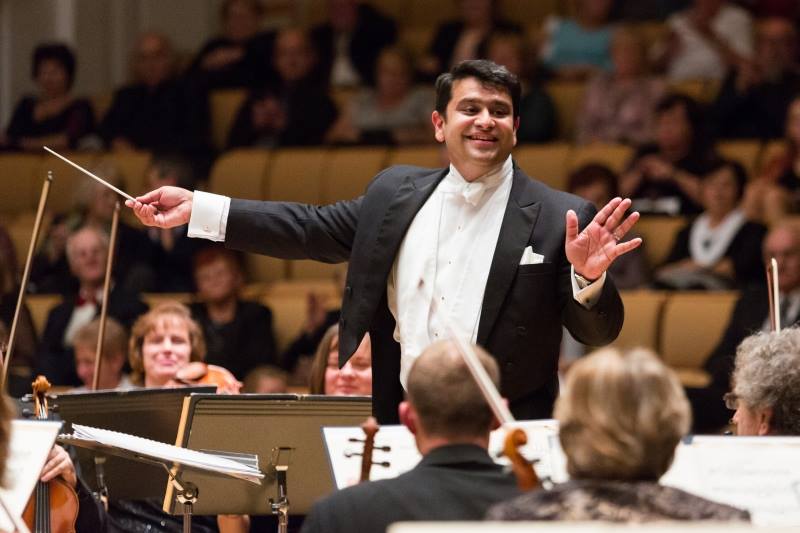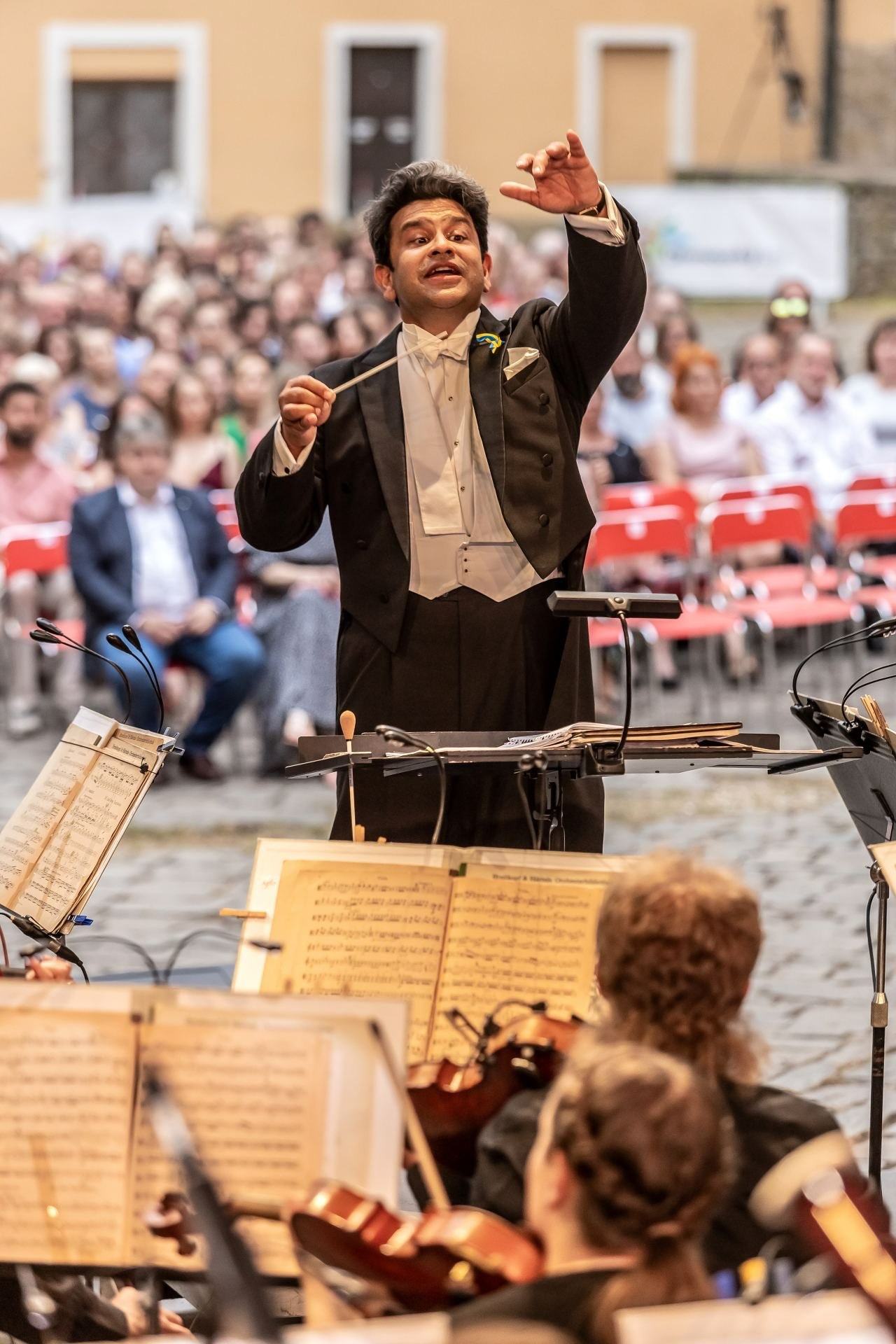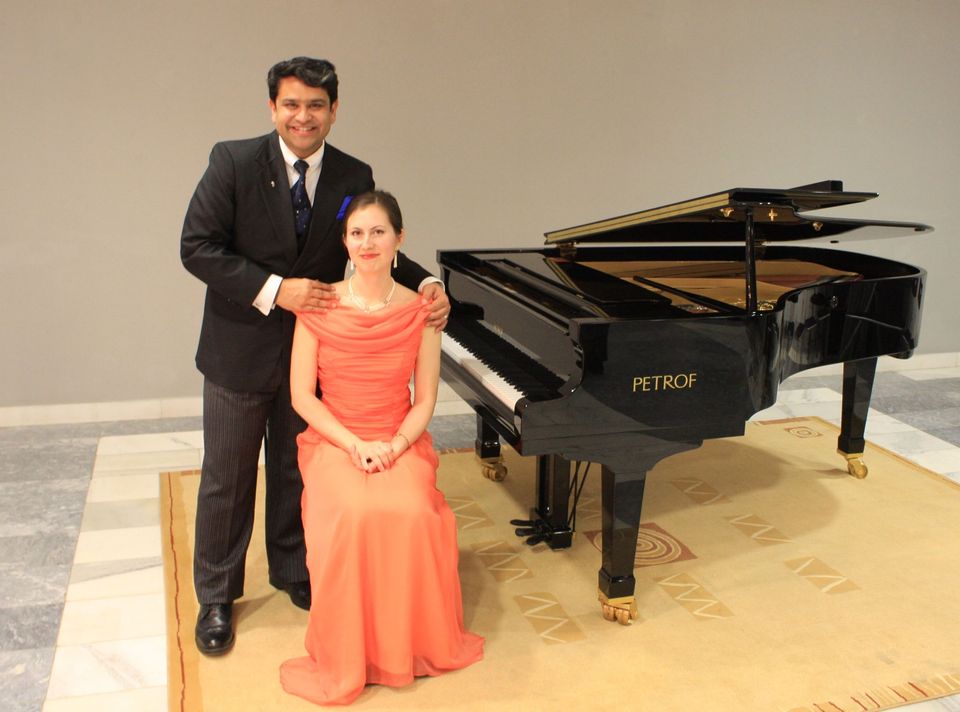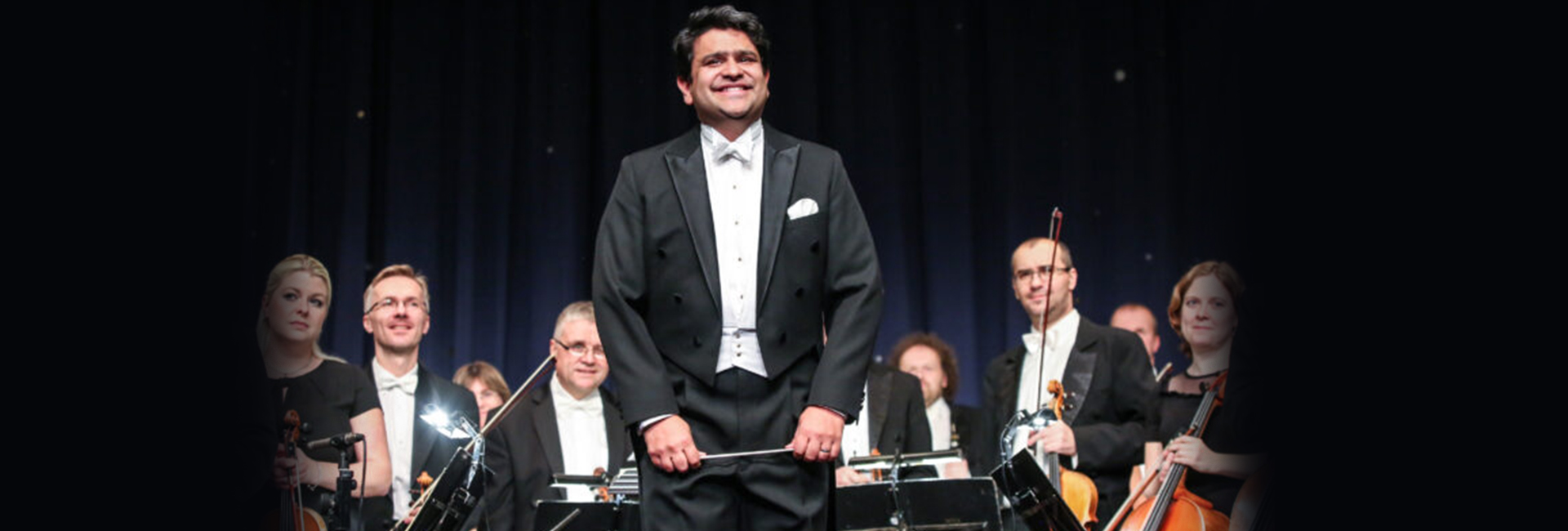(November 23, 2022) His first job was as a music teacher at St. James’ School, Kolkata in 1995. Surrounded by several instruments, a young Debashish Chaudhuri would often daydream about giving a stage performance someday. Little did the maestro know that one day, he would become one of the finest symphonic conductors of Western classical music. Based in the Czech Republic, the maestro has worked with several leading European orchestras such as Prague Philharmonia PKF, Brno Philharmonic, Czech Chamber Orchestra Pardubice, Plzen Radio Symphony, South Bohemian Chamber Philharmonic, Karlovy Vary Symphony, Hradec Kralove Philharmonic, Zlin Philharmonic, Moravian Philharmonic, State Philharmonic Zilina and several others.

Symphonic conductor, Debashish Chaudhuri
Currently, the maestro is serving on the governing body of The Antonín Dvořák Music Festival and is part of the Petrof Art Family. Recognising his contributions to the world of music, the Government of India awarded him the highest award for non-resident Indians, Pravasi Bharat Samman in 2021. Interestingly, Chaudhuri also received the prestigious Distinguished Contribution to Diplomacy Medal from the Czech Republic in the same year.
“Music was something that truly and deeply fulfilled me. I knew well before my teens that music had to be a part of my life, which was quite early on. I don’t mean to say that I wanted to be a conductor at once, at that early age,” the maestro said during an interview with Serenade Magazine, adding, “I have always been extremely passionate about music, even before I could walk.”
Born to music
There is hardly any home in the entire state of West Bengal without a musical instrument. And maestro Chaudhuri’s house was no different. His childhood was spent listening to a lot of Rabindra Sangeet, Bollywood, and other folk songs. “I guess this love (for music) was kindled by my parents, both of whom love music. Ever since I remember, there was always some music playing in the house. Even my grandparents – we all were lovers of music and in Bengal, it’s quite normal to have all sorts of songs sung in the house throughout the year,” he shared.

Growing up, Chaudhari moved to various cities, and even countries, as a result of his father’s frequent postings. Everywhere he went, he would try to learn more about the local music and art, which inspired him further to pursue a career in music. It was during his teenage years that he decided to leave his academics and concentrate on his music studies. “India isn’t typically a country where society would encourage a musical career with the same enthusiasm and awe, as in the West, not even in Calcutta. I recall several people discouraging me when I decided not to further my academics and concentrate on music alone. Fortunately, those people weren’t my parents or some other very key people, who believed in me and gave me that space to grow in the way that they all felt was natural for me,” the maestro recalled.
After finishing his diploma in music, Chaudhari joined St Jame’s school in Kolkata, where he conducted their four choirs. This experience pushed him to learn more about European music and he eventually founded the St. James’ School Orchestra and the Calcutta School of Music Chamber Orchestra, over the next few years.
The heart of Europe
Three years after he got his first job, Chaudhuri got a chance to move to Prague and was the first Indian to have studied at the Prague Conservatory. He also trained under maestro Gianluigi Gelmetti at the Chigiana Academy of Music in Siena, Italy, where he studied symphonic conduct.
“I suppose, the influence in Prague was at various stages and by various individuals. Not only one’s teachers but also the fact that you can come into such close contact with such great international musicians and talk to them, hear their views and share their experiences. So many names were just on the labels of cassettes and records for me and suddenly, you are talking to them without any “false barriers”! My love for Dvořák’s music was cemented very early on due to the closeness I developed quite by chance, with his descendants and family; they are among my closest and oldest friends here now,” the maestro said.
Conducting acclaimed Philharmonics around the world
In 2004, Chaudhuri did his conducting at the Janáček Festival in his Silesian hometown of Hukvaldy, at the annual festival. Since then, he has worked with various orchestras, including Bohuslav Martinů Philharmonic Orchestra, Prague Philharmonia, Stratus Chamber Orchestra (USA), Žilina State Chamber Orchestra (Slovakia), and Karlovy Vary Philharmonic Orchestra.

Debashish and Jana Chaudhuri
Still connected to his roots, the maestro was the brains behind rediscovering the original orchestral score of Czech composer J.B Foerster’s song cycle based on Rabindranath Tagore’s ‘Gitanjali’. “Being a non-European conductor isn’t all that rare, there are so many now and they are often better received than the native ones today. I guess that there were challenges but I never took them in that light and I don’t want to start thinking that way now, after so many years. Whatever they may have been, one had to cross them if one wanted to get to one’s goals. Sometimes it’s better not to know the problems and challenges beforehand,” he had said, when asked about the greatest challenges he faced in his career, in a recent interview.
Making a difference back home
Married to one of the most applauded Czech pianists, Jana, Chaudhuri wishes to help young Indian artists, who are passionate about making a career in music. “We decided a few years back to start a family scholarship for Indian citizens, based out of India, who wish to further their knowledge in European classical music. Since 2016, in connection with the Calcutta School of Music, we sponsor such people to attend the now 25-year-old Ameropa Music Courses in Prague. Over the summer months, they come into contact with others from around the world and teachers, who guide them in a very intense concert-filled course in solo and chamber music. The course can be attended by anyone who doesn’t get the scholarships as well, as they are paid and open to all who reach the standards required. Talent is a massive resource in India we believe,” the musician shared.
- Follow Debashish Chaudhury on Facebook


